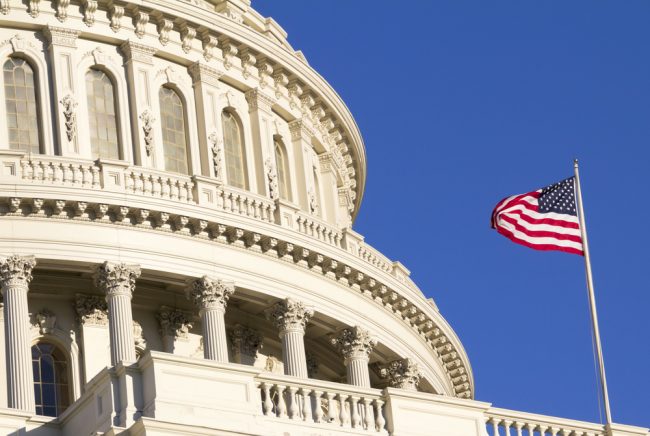 The U.S. Capitol building
The U.S. Capitol building
Four senators—two Democrats and two Republicans–have joined the Senate Banking Committee for the 116th Congress.
The four new members replace senators who were either defeated or retired; the partisan ratio of the panel remains the same—one more Republican than Democrat.
Recommended For You
And in an interesting twist, a freshman Democrat is joining the committee, as is the Republican she defeated in the November election.
Sen. Krysten Sinema (D-Ariz.) was elected in November, defeating Republican Martha McSally. However, Arizona Gov. Doug Ducey appointed McSally to fill the term of the late Republican Sen. John McCain. Ducey had appointed former Republican Jon Kyl to complete McCain's term, but Kyl resigned.
Here are the four new members of the Senate Banking Committee
Kevin Cramer (R-N.D.)
A conservative and staunch supporter of President Trump, Cramer defeated former Sen. Heidi Heitkamp in the November election.
Kramer already had been elected statewide in North Dakota, having served as the state sole House member since 2013.
He has served as the co-chairman of the Northern Border Caucus, which focuses on growth in the relationship between the U.S. and Canada.
Cramer has served as the chairman of the North Dakota Republican part. From 1993 to 2000, he served as the state's tourism director and then as Economic Development and Finance Director. He also served on the North Dakota Public Service Commission.
He has pushed for the rollback of many federal regulations. During the last Congress, Cramer supported the massive overhaul bill pushed by then House Financial Services Chairman Jeb Hensarling (R-Texas). That bill was known as the Financial CHOICE Act. Eventually, he supported the more modest Senate regulatory bill that eventually became law.
Martha McSally (R-Ariz.)
McSally served two terms in the House before being elected to the Senate. McSally served 26 years in the U.S. Air Force, retiring in 2010. She is the first female fighter pilot to fly in combat and the first to command a fighter squadron in combat.
While in the Air Force, McSally also participated in the Air Force's Legislative Fellowship Program, serving as Kyl's national security advisor.
After retiring from the Air Force, she taught and mentored military officials from around the world as a professor national security at the George C. Marshall Center in Germany.
While in the House, McSally was a member of the Republican Main Street Partnership and the Tuesday Group, two organizations of moderate Republicans.
She supported Hensarling's Financial CHOICE bill and the Senate bipartisan compromise.
Tina Smith (D-Minn.)
Smith initially was appointed to fill seat vacated by former Democratic Sen. Al Franken, who had resigned. She was elected in a special election in November.
Smith worked in marketing before entering politics and former Democratic Vice President and Sen. Walter Mondale has been identified as her political mentor.
Smith was considered as an insider in state politics, having served as the state's lieutenant governor, as well as the chief of staff to Minneapolis Mayor R.T. Rybak and Gov. Mark Dayton. She had been mentioned as a possible gubernatorial candidate after Dayton left office last year.
Smith opposed the bipartisan Senate regulatory overhaul bill that eventually became law.
Krysten Sinema (D-Ariz.)
Sinema defeated McSally in one of 2018's most hotly contested races. She served in the House from 2013 until her election to the Senate.
She previously served in the Arizona House, as well as the state Senate.
She began her career as an activist in the Green Party before becoming a Democrat. Eventually, her political philosophy took a right-ward turn and while in the House, she was a member of the Blue Dogs, a group of moderate-to-conservative House Democrats.
Sinema is the first openly bisexual member of Congress.
As a House member, Sinema opposed Hensarling's Financial CHOICE Act, but voted in favor of the more modest Senate regulatory overhaul bill when it reached the House.
© Touchpoint Markets, All Rights Reserved. Request academic re-use from www.copyright.com. All other uses, submit a request to [email protected]. For more inforrmation visit Asset & Logo Licensing.






